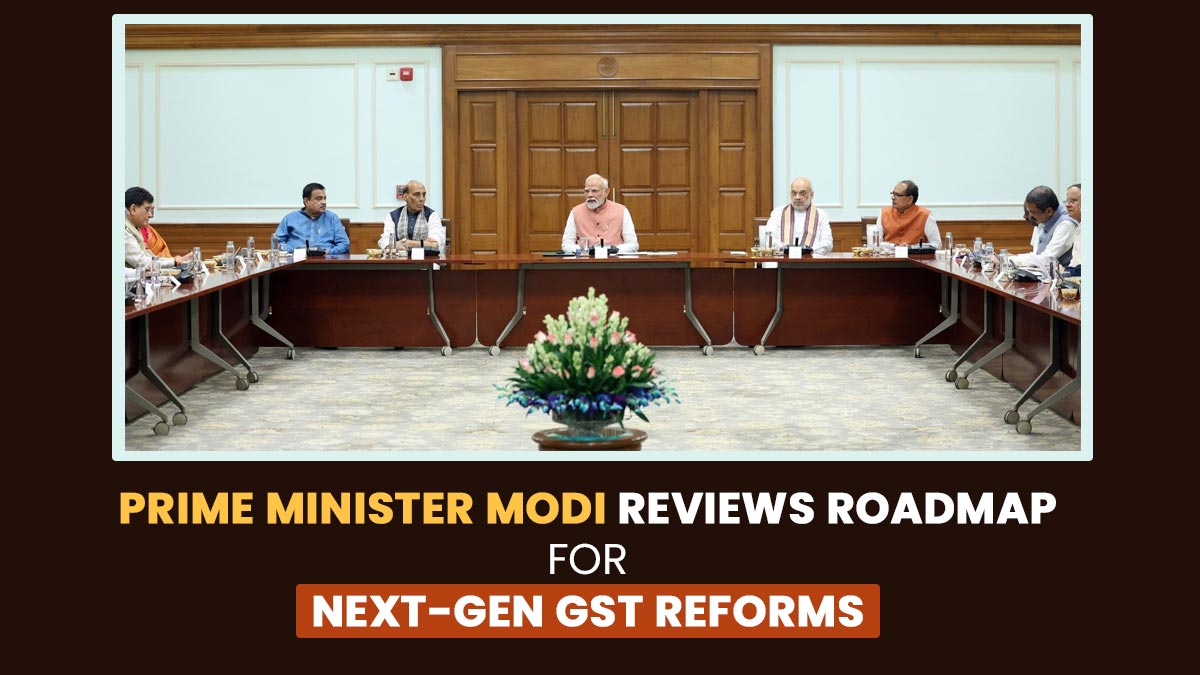
Prime Minister Narendra Modi has chaired a high-level meeting with senior ministers, secretaries, and economists to discuss the roadmap for ‘next-generation reforms’ and a modification of GST laws.
The Prime Minister shared a post on X, saying, “Chaired a meeting to discuss the roadmap for Next-Generation Reforms.”
“We are committed to speedy reforms across all sectors, which will boost Ease of Living, Ease of Doing Business and prosperity,” he expressed.
Union ministers Rajnath Singh, Amit Shah, Nitin Gadkari, Nirmala Sitharaman, Shivraj Singh Chouhan, Piyush Goyal and Lalan Singh have attended the meeting.
This high-level meeting followed PM Modi’s Independence Day address, where he promised a “Diwali gift” in the form of GST reforms and a lighter tax burden.
“This Diwali, I am going to make it a double Diwali for you… Over the past eight years, we have undertaken a major reform in GST… We are bringing next-generation GST reforms. This will reduce the tax burden across the country,” he expressed, confirming that these reforms shall benefit citizens and promote economic activity.
The Centre, after the announcement of the Prime Minister, has introduced a draft blueprint for GST 2.0, proposing two primary tax slabs: 5% on essential items and 18% for most other goods, to facilitate the system and ease compliance.
The GST framework at present has five slabs: nil, 5%, 12%, 18% and 28% with additional rates of 0.25% and 3% on precious metals.
Read Also: Revised GST Slab Rates in India
Also, PM Modi announced the formation of a Task Force for next-generation reforms for reviewing existing laws, rules, and procedures of economic activities.
The timing of such an announcement is crucial, since they are arriving in between the heightened trade tensions with the United States.
US President Donald Trump, while quoting India’s continued purchase of Russian oil, hit India with an additional “penalty” tariff of 25% on all Indian imports, on top of the 25% duty already in place.
From August 7, 2025, the 25% rate has come into force, and from August 27, the newly announced additional tariff shall take effect.
The move is “unfortunate,” the Ministry of External Affairs, in response, cited and repeated its stand that India shall continue to safeguard its “own national interest.”